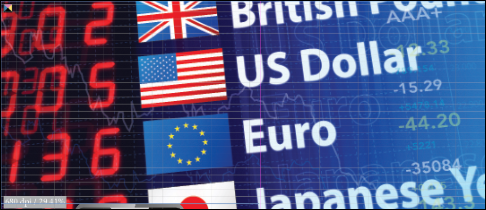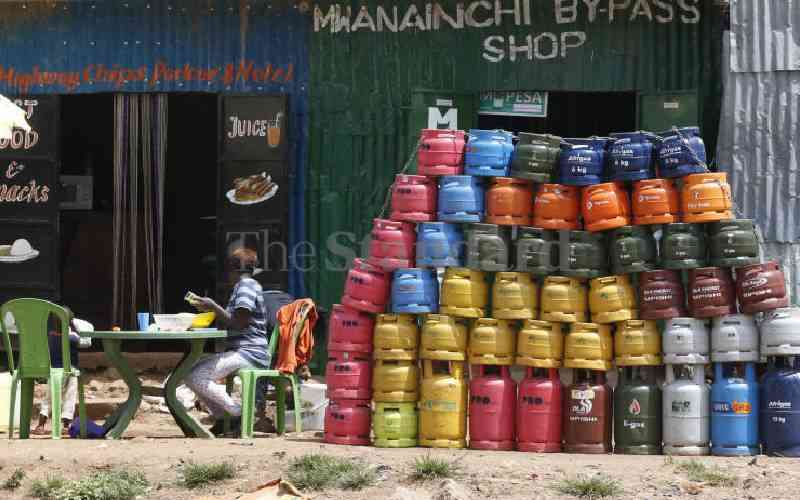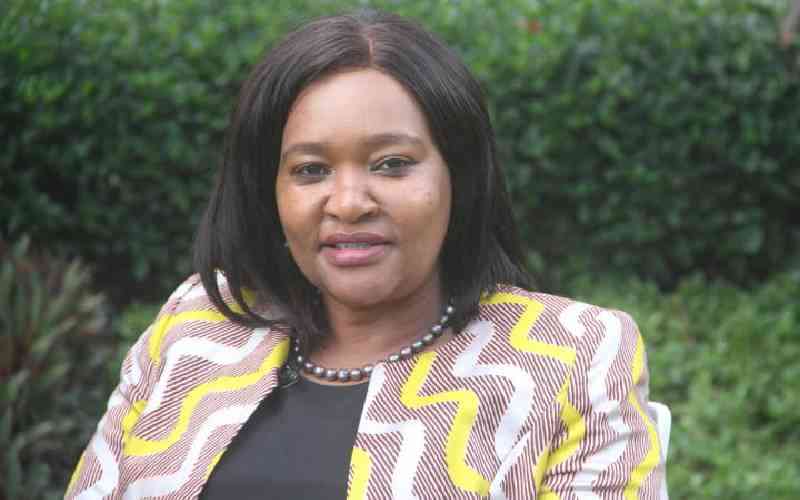
The dream of becoming an overnight millionaire ended one night for Nancy Wanjiku when she woke up and Sh400,000 was gone.
This was not a heist. She had put in Sh200,000 which grew literally on the screen of her mobile phone in sophisticated charts and doubled to Sh400,000. Then while she waited for the cash to double again, she slept and the money was gone.
Wanjiku had invested her money with a certain local online forex (foreign exchange) broker who had promised her handsome returns.
“You know, the money doubles and you feel you will be a millionaire overnight, I should have removed it when it doubled. This thing is just like gambling,” she said.
Just how big is this online forex trading business in Kenya?
For any ordinary Kenyan, converting shillings to dollars is tricky arithmetic yet they are lured by supposedly huge returns from buying and selling currencies such as Japanese Yen and Chinese Yuan whose exchange rate they cannot even tell.
Weekend Business set out to discover the world of online forex trading by setting up an account with a legitimate trader, EGM Securities.
A split screen with four charts dancing with zig zag lines like those of a life-saving defibrillator machine is all we see, and are completely clueless on how the buying and selling happens.
We ask EGM Securities how one could even make sense of such complexity and whether it is easy to lose Sh200,000 overnight.
“Yes, this is true. You can wipe out your investment. Again depending on your trading experience you can make a lot of money or lose,” says a customer support executive at EGM who only gave one name, Martin.
EGM calls the new clients who have set up a demo account and offers YouTube tutorials and reading materials. They say the interest in online forex trading is growing.
“New traders sometimes are not even able to sign into the demo account so if you have placed a trade you have really tried,” says Martin.
“The risk is there so that is why we have the demo account so that you are familiar with the trading before you start the actual trading. We offer workshops that take you through the basics of forex trading.”
Brian Masila, who operates an online forex trading account, says he learnt how to do it at Nairobi School of Forex Trading, an institution run by Silah Obegi.
“They facilitated me to open a demo account where I learnt practical trading. Initially, I had done my own research but it was not easy until they took me through the process,” Mr Masila says.
Mr Obegi says the course, which takes a month, costs Sh50,000. They also give their students a real account at EGM Securities to trade Sh50,000 where they monitor the learner and give advice on how to make the trades.
“You can see here one student called Esther had confused Australian dollars with US dollars and I was able to notify her to make amends,” he says, showing me his phone.
“We give practicals on fundamentals of trading as well as technical training and even psychological training,” says Obegi.
“You see, when you are making money you become greedy and when you are losing you become fearful and make subjective decisions, so we teach our students how to manage emotions and even if they are losing they do it in a sustainable way.”
Dozen of Internet websites make it look like forex trading is a piece of cake.
Most based in the UK including FXCL, XM Global, FBS Brokers and Irish-based Ava trade require you to put in a minimum of $5 (Sh500) to minimum of $100 (Sh10,000) to start trading, some of which you pay by debit or credit card.
One such establishment has taken up a whole wing at View Park Towers.
With over 1,000 businesses in the imposing complex, the company is camouflaged in the aging building with no signage to direct you. It relies on referrals rather than walk-in clients.
Operating in three offices, the firm is split into cubicles of up to four in each room with each cubicle manned by a female attendant - a sales trick common in Nairobi.
At the reception, there are droves of waiting ‘investors’ some of whom are directed to the other offices to wait their turn, a crowd that would be the envy of any investment firm.
The cubicles are layered top to bottom with blue wall paper, and the only place the name of the company is displayed is inside, not outside.
The attendant’s desk is bare save for her phone and a pile of ‘contracts’ to be filled by potential clients. She repeats a sales pitch she was probably trained to say over and over.
“At Interweb we invest exclusively in online forex, buying seven strong currencies like the Euro, dollars, British pounds, Canadian dollars, Japanese and Chinese. You can invest a minimum of Sh10,000 to Sh100,000 and we guarantee you a return of 20 per cent every month,” she says.
“You will need to lock in the money for at least three months or a year. We also offer training for Sh100,000, giving classes every day in the morning. We have been in this building for 15 years and in this business,” says the sales executive.
Then it gets into Ponzi scheme territory where if you bring in another referral you get five per cent commission, one off, of what the new investor puts in - thus encouraging spread by the word of mouth
This multilevel marketing strategy is usually a specialty of pyramid schemes.
When we ask how they can guarantee 20 per cent return and whether the company is licensed, they are elusive.
“Our director has a way of balancing so you cannot lose the money and when the profits are high he also balances. We are regulated by FXCL, it’s not local but a global body,” says the sales executive.
When we asked EGM Securities whether such a high return is a reasonable promise in this line of business:
“No, it is not,” says Martin.
In fact, FXCL is just a trading platform which declares that the business is risky and not for everyone.
“Trading foreign exchange on margin carries a high level of risk, and may not be suitable for all investors. You should make sure you understand the risks involved, seeking for independent advice if necessary,” the British based firm states.
So risky is the business that the firm bars investments from countries where authorities look out for their citizens with harsh regulations against such business or where the governments tax the sector.
“FXCL Markets does not solicit residents of Japan, USA and Canada to open trading accounts. Citizens of mentioned countries (regardless of residence) are not accepted. Residents and citizens of the UN-sanctioned countries are also not accepted,” the website reads.
Masila says the industry is strewn with fake players and it is difficult to know which ones are genuine.
“Before I got Nairobi School of Forex Trading, I went researching online and on social media. Some claim they are trainers but when you ask for their offices they tell you the training will be online or in a hotel,” he says.
Market regulators seem to have woken up to the threat posed by the online businesses following reports that investors had been conned out of hundreds of millions.
The Capital Markets Authority (CMA) estimates that about 50,000 people including brokers, dealers and money managers, are in the business and are mainly using offshore platforms that are not overseen by the local regulators.
“The authority will take appropriate enforcement action against any persons or entities illegally conducting online foreign exchange trade or collecting clients’ funds in contravention of the regulatory provisions,” said CMA Chief Executive Paul Muthaura.
“The public affected or aware of such illegal online foreign exchange transactions are advised to report to the authority or the Capital Markets Fraud Investigation Unit.”
CMA enacted the Capital Markets (Online Foreign Exchange Trading) Regulations, 2017 which has since seen Cyprus-based online currency trader SCFM Limited and EGM Securities get the only two approvals to carry out the business.
Obegi says that he was consulted for coments when the law was being drafted and part of the training they give is to take students through the regulations.
“Educators are not regulated unless you are giving some sort of certification. Ours is specialised training into niche markets, like people taking a seminar,” he said.
Cryptocurrency
CMA has also cracked down on cryptocurrency traders who attempt to set up online pages to trade them like you would shares.
A local cryptocurrency company, Wiseman Talent Ventures is embroiled in a court battle with the regulator, which stopped its Initial Coin Offer.
Between April and August last year, the company offered to sell digital coins dubbed Kenicoin at Sh100 each whose prices gained to Sh400 over the five months.
To have more people buy the digital investment, the company promised 10 per cent monthly gains. But it fixed a higher price at its trading website of 20 times the value of the investment.
“The CMA observed that the plaintiff promised guaranteed returns of 10 per cent monthly on initial investments in coins which were issued at Sh100 and were purportedly being marketed as trading at Sh2,000 at the Kenicoin exchange,” says CMA in a reply filed by Timothy Githendu.
Further, CMA says the firm cooked figures of the number of people buying their product to show 27,768 people had raised Sh535 million, while in reality only 2,000 people had raised Sh2 million.
When it summoned the founder and CEO of Wiseman, Haron Kiriba, and questioned him, the firm allegedly changed the figures on the website.
Kiriba told CMA that his entity was a ‘mentorship firm’ with a vision to nurture talent among the youth and he began Kenicoin investment business model to raise funds for ‘mentorship .’
 The Standard Group Plc is a multi-media organization with investments in media
platforms spanning newspaper print operations, television, radio broadcasting,
digital and online services. The Standard Group is recognized as a leading
multi-media house in Kenya with a key influence in matters of national and
international interest.
The Standard Group Plc is a multi-media organization with investments in media
platforms spanning newspaper print operations, television, radio broadcasting,
digital and online services. The Standard Group is recognized as a leading
multi-media house in Kenya with a key influence in matters of national and
international interest.
 The Standard Group Plc is a multi-media organization with investments in media
platforms spanning newspaper print operations, television, radio broadcasting,
digital and online services. The Standard Group is recognized as a leading
multi-media house in Kenya with a key influence in matters of national and
international interest.
The Standard Group Plc is a multi-media organization with investments in media
platforms spanning newspaper print operations, television, radio broadcasting,
digital and online services. The Standard Group is recognized as a leading
multi-media house in Kenya with a key influence in matters of national and
international interest.










